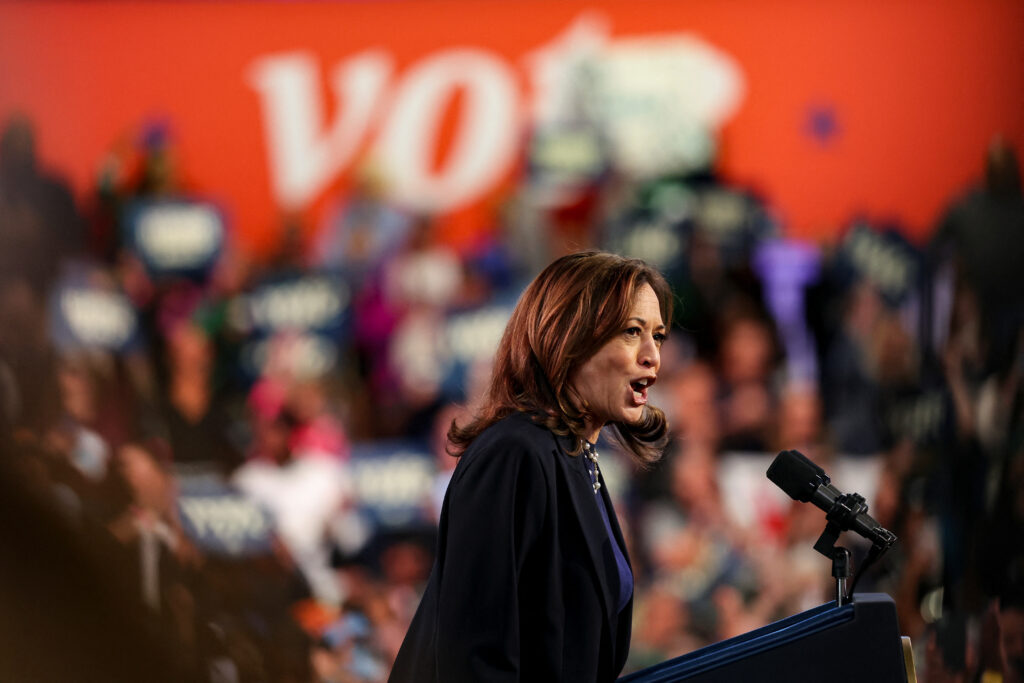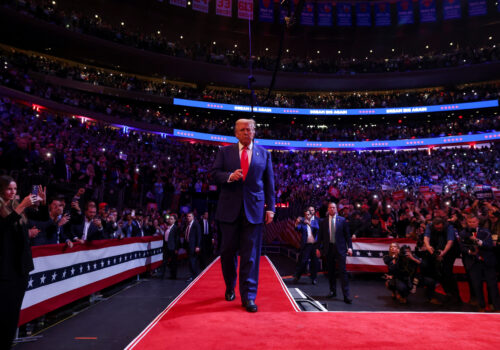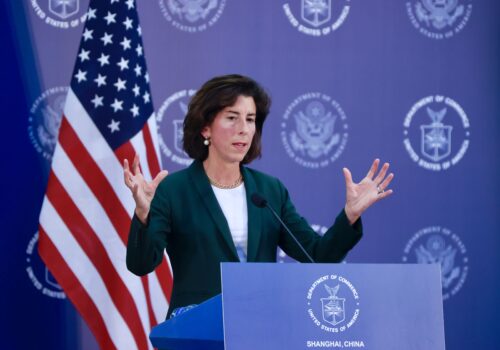Read “What Africa can expect under a second Trump administration” here
Should US Vice President Kamala Harris get elected president this November, African leaders will already have some sense of what to expect, as she would likely follow policies from the current administration. Harris would walk into the office on day one with significant Africa experience having played an important role in supporting the Biden administration’s Africa agenda, served on the intelligence committee in the US Senate, and spent years prosecuting cases with international links.
But Harris has an important opportunity to build on those efforts to advance US-Africa policy. As a candidate for president, Harris has framed her campaign as a “fight for freedom,” suggesting that Harris may pursue a foreign policy that focuses on promoting democratic ideals, institutions, and norms globally. And while she has not detailed a foreign policy agenda, her focus on specific issues—domestically, those include abortion access and LGBTQI+ rights—suggests that she may lean toward an issue-based foreign policy that more forcefully supports human rights and anticorruption efforts, among other issues.
Using the power of the presidency
As a prosecutor and California attorney general, Harris pursued a wide array of cases and legislation with an international connection on issues including corruption, human trafficking, and more. Harris should bolster the US Strategy on Countering Corruption, released in December 2021, which could further empower executive branch agencies to combat corruption in Africa.
In remarks reflecting on her 2023 visit to Ghana, Tanzania, and Zambia, Harris spoke about the power of partnership with African countries and the significant investment opportunities they offer, such as those in culture, music, and arts. Harris could use the power of the presidency to build on President Joe Biden’s 2022 executive order supporting African culture, creative industries, and digital innovation to strengthen economic growth and prosperity in Africa.
In what would amount to a visible paradigm shift, as president Harris should avoid repeatedly rescheduling visits to Africa, as Biden has done. She has garnered some momentum in showing Africa how much it matters to her with her March 2023 visit to the continent. Nevertheless, if she wins she should strongly consider making a visit to Africa within her first one hundred days (or at least meeting with African presidents in Washington) to show that Africa is not too far down her priority list.
Working with Congress
While US-Africa policy—especially on human rights, good governance, and US national security priorities—has historically been bipartisan, if she becomes president Harris must still make a deliberate effort to work with both Democrats and Republicans to advance critical legislation to her desk. Several US-Africa policy tools would require legislative action during her administration.
The Prosper Africa Initiative, an ongoing initiative started in September 2019 to increase two-way trade and investment between the United States and African countries, should be codified into law to ensure its long-term success in supporting economic growth in Africa. On trade and investment, legislation is required to reauthorize the African Growth and Opportunity Act and the US International Development Finance Corporation (DFC) in 2025 and the US Export Import Bank in 2026. The potential Harris administration must work with Congress to prioritize efforts to reauthorize and modernize such policies and agencies. For example, the DFC needs the power to make quicker financing decisions and the ability to deploy more robust resources to counter the influence of global competitors, expand partnerships, secure access to critical minerals, and ensure US national economic security objectives in Africa.
Personnel as policy
A successful US-Africa policy will come down to the people who are executing it. If she wins, Harris will need to ensure that she staffs up her National Security Council (NSC) with experts who are committed to showing that Africa is a presidential priority, to informing impactful policies, and to organizing meaningful senior-level visits to the continent and White House meetings with African leaders. Harris and her team should hire creatively for roles at the NSC, looking across the public and private sector to ensure the right people are in the right roles.
For starters, Harris should ensure that the assistant secretary for African affairs at the State Department is one of the United States’ top diplomats and that he or she has the connections and skills needed to lead a dynamic workforce on day one. Beyond that, Harris should spend political capital with Congress to ensure the State Department can do the job asked of it. This includes having the ability to quickly staff historically difficult-to-fill positions across the Africa bureau and embassies, along with reducing reporting burdens for annual reports on issues like human rights and trafficking in persons and deemphasizing the kind of generic reporting and cables that can easily be found in open-source media—as these efforts take time away from more important tasks.
If she becomes president, Harris will need to tackle issues that have proven difficult for US policymakers and African leaders alike, ranging from promoting economic growth, to protecting human rights, to fighting corruption and beyond. To address these issues effectively, she will need a reinvigorated strategy that bolsters and modernizes previous efforts. Harris can’t miss the mark on Africa—after all, Russia and China are closely watching and waiting to exploit any missed opportunities.
Benjamin Mossberg is the deputy director of the Atlantic Council’s Africa Center.
Further reading
Tue, Oct 29, 2024
What Africa can expect under a second Trump administration: A focus on the ‘numbers’
AfricaSource By
The next Trump administration would likely seek to unleash as much energy from a growing young African population as possible.
Wed, Sep 25, 2024
What the next administration should do to ensure US economic and national security
New Atlanticist By Kimberly Donovan, Maia Nikoladze
The next administration must protect sensitive US technology, drive the energy transition, and safeguard the global financial system.
Sat, Oct 19, 2024
The US is electing a wartime president
Inflection Points By Frederick Kempe
Neither US presidential candidate has yet addressed the generational challenge posed by closer collaboration among China, Russia, Iran, and North Korea.
Image: Democratic presidential nominee U.S. Vice President Kamala Harris gives a speech during a campaign rally at The Alan Horwitz "Sixth Man" Center, in Philadelphia, Pennsylvania, U.S. October 27, 2024. REUTERS/Eloisa Lopez



